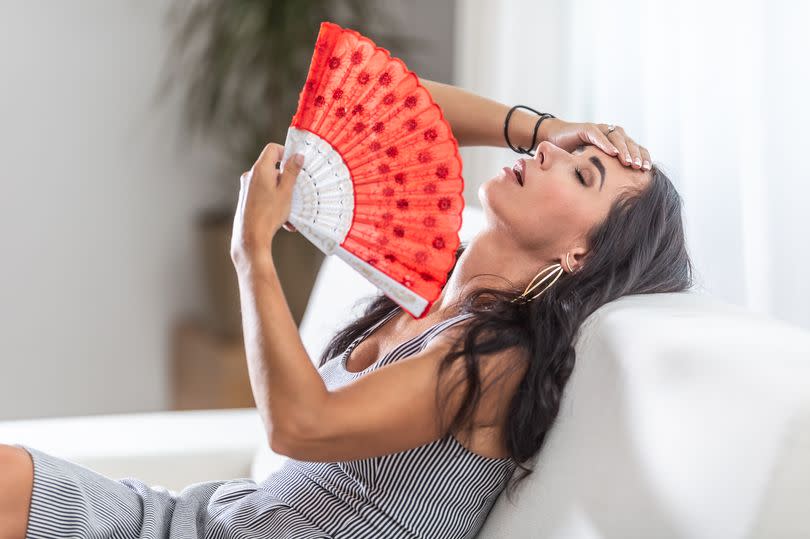How to spot the signs of heatstroke as UK set to sizzle in 30C weather

With temperatures set to soar beyond 30C in the coming days, Brits are preparing to soak up the sun as the long-awaited British Summer makes a blazing entrance. Following weeks of speculation about when warmer weather would grace the UK, those longing for sunshine will be delighted, as forecasts from the Met Office suggest thermometers will rocket beginning Sunday night and lasting until approximately Thursday.
Met Office senior meteorologist Liam Esack said: "Temperatures will increase through the week, peaking on Wednesday and Thursday with highs of 30-31C in the South East."
Yet not everyone relishes extreme heat; some may struggle, prompting the UK Health Security Agency to issue a yellow warning covering nearly the entire nation due to heightened temperatures, advising vulnerable individuals to remain indoors and keep hydrated.
READ MORE: Warning over three popular sunscreens which may not protect you
For those venturing outdoors, the NHS recommends using ample sunscreen to prevent sunburn, suggesting a minimum SPF30 to protect your skin effectively. To combat the dangers of excessive heat including potentially lethal conditions like heatstroke the NHS urges people of all ages to drink plenty of water and stay hydrated.
If you're planning to bask in the sun, it's crucial to be aware of the symptoms of both heat exhaustion and heat stroke, so you can take immediate action if things take a turn for the worse, reports Gloucestershire Live.
Signs and symptoms of heat exhaustion
Heat exhaustion doesn't necessitate emergency medical attention, provided the individual can be cooled down within 30 minutes. If the condition persists beyond this timeframe, it could escalate into an emergency, necessitating urgent medical assistance.
Here are some signs and symptoms to look out for:
tiredness
dizziness
headache
feeling sick or being sick
excessive sweating and skin becoming pale and clammy or getting a heat rash, but a change in skin colour can be harder to see on brown and black skin
cramps in the arms, legs and stomach
fast breathing or heartbeat
a high temperature
being very thirsty
weakness
How to handle heat exhaustion
If someone is suffering from heat exhaustion, adhere to these five steps:
Move them to a cool place.
Remove all unnecessary clothing like a jacket or socks.
Get them to drink a sports or rehydration drink, or cool water.
Cool their skin – spray or sponge them with cool water and fan them. Cold packs, wrapped in a cloth and put under the armpits or on the neck are good too.
Stay with them until they're better.
The person should begin to cool down and feel better within half an hour. However, if this isn't the case, their condition may have advanced to heatstroke, at which point you should dial 999 without delay.
Signs and symptoms of heatstroke
The person is still unwell after 30 minutes in the shade and after drinking fluids
A very high temperature
Hot skin that’s not sweating, it may look red (this can be harder to see on brown and black skin)
A fast heartbeat
Fast breathing or shortness of breath
Confusion and lack of co-ordination
A seizure or fit
Loss of consciousness
Preventing heat exhaustion and heatstroke
The NHS warns that there's a high risk of heat exhaustion or heatstroke during hot weather or strenuous exercise. Vulnerable individuals such as the elderly, young children, and those with underlying health issues (like diabetes or heart problems) are particularly prone to heat-related illnesses.
Fortunately, there are measures you can take to safeguard yourself and prevent either condition, including:
Drinking more cold drinks, especially if you're active or exercising
Wearing light-coloured, loose clothing
Avoiding the sun between 11am and 3pm
Avoiding excess alcohol
Avoiding extreme exercise
If you're inside on a very hot day, close curtains, close windows if it's hotter outside than in your home and turn off electrical equipment and lights that get hot.

 Yahoo News
Yahoo News 
